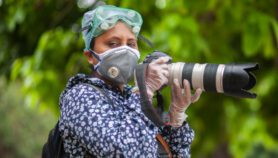Send to a friend
The details you provide on this page will not be used to send unsolicited email, and will not be sold to a 3rd party. See privacy policy.
These two guides published by the UK-based trust Sense About Science focus on how and why early-career scientists can and should make the most of communication opportunities.
In ‘Standing up for Science’ researchers share what they have learned from good and bad media encounters and give hands-on advice on handling tricky interviews and controversial topics.
Journalists explain the challenges they face when reporting on science and working with the sources behind the stories. The guide concludes with a checklist to use when contacted by the media.
‘Standing up for Science 2 — the nuts and bolts’ looks at ways to promote evidence-based science in public. Case studies show the importance of ‘myth-busting’ to prevent exploitation.
The guide encourages scientists to fight misinformation by responding to poor reporting of science in the press and taking on companies that make unfounded product claims.
Tips on writing to politicians, speaking out at public meetings, writing letters to the editor, pitching articles and preparing for interviews are included. The guide also touches on the communication potential of new media and social networking sites.
Despite the UK focus, both guides should be useful to most scientists who are new to public engagement.
Link to ‘Standing up for Science’ on the Sense About Science website ![]() [263kB]
[263kB]
Link to ‘Standing up for Science 2 — the nuts and bolts on the Sense About Science website ![]()
![]()
![]()
![]()
![]()













